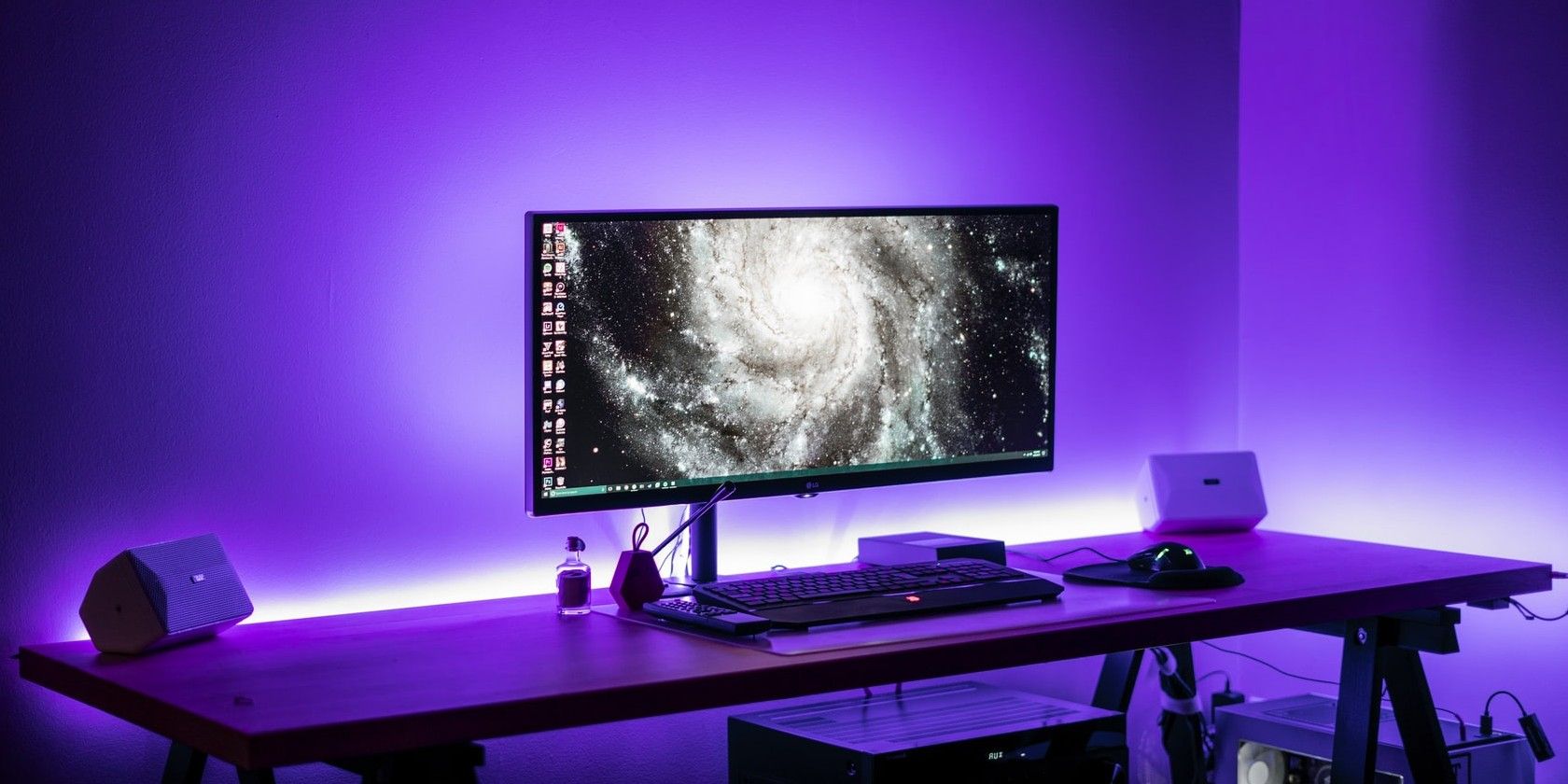啟動時出現黑畫面可能會令人沮喪。由於螢幕上沒有可見信息,識別根本問題可能很棘手。但是,您可以採取一些措施來解決 Windows 10 和 Windows 11 上的黑屏問題。 Windows 正在啟動。為此,請按 Win + Ctrl + Shift + B。
2. 檢查顯示器和電纜
這可能看起來很簡單,但如果您還沒有檢查顯示器連接,那麼檢查顯示器連接至關重要。首先拔下所有顯示器電纜,然後將它們牢固地插回以確保它們牢固連接。另外,請確保您的顯示器實際上已開啟。 如果可以,請使用另一個顯示器連接。例如,從 HDMI 轉移到 DisplayPort。或者,使用新電纜。這將幫助您確定問題是否出在顯示器連接埠或連接線。您也可以嘗試將顯示器連接到其他電腦(如果有),以檢查顯示器本身是否有故障。
3. 拔除外部裝置
關閉電腦並中斷所有外部裝置的連接,包括滑鼠、鍵盤、外部硬碟和其他裝置。重新啟動計算機,看看是否仍出現黑屏。如果這樣可以解決問題,請一次插入每個設備,直到找到導致問題的原因。
4. 調整投影設定
您的系統的投影設定可能配置錯誤。例如,如果您的顯示器設定為投影到不存在的第二個螢幕上,則您的顯示器可能會顯示黑色螢幕。
按 Win + P 調出「投影」選單。從上到下,選項分別是「僅 PC 螢幕」、「複製」、「擴充」和「僅第二螢幕」。雖然第一個是預設值,但您的可能未設定為它。 按 P 以反白顯示下一個選項,然後按 Enter 將其選取。由於您可能會在螢幕黑暗時嘗試此操作,因此需要進行一些嘗試和錯誤。重複此操作四次會將其恢復為原始設置,但希望一路上的設置之一能夠恢復您的顯示。
5. 重新安裝顯示驅動程式
若要重新安裝顯示驅動程序,您需要啟動至安全性模式。您需要的方法取決於多種因素,因此請按照以下相應步驟操作,然後繼續閱讀以了解如何重新安裝顯示驅動程式。
A. 您可以看到登入畫面重新啟動電腦。 在登入畫面上,按住 Shift 鍵,點擊電源圖標,然後選擇重新啟動。 重新啟動後,選擇“故障排除”>“進階選項>啟動設定>重新開始。同樣,您的系統將重新啟動並為您提供不同的選項。 按 F5 選擇網路安全模式。如果這不起作用,請按照前面的步驟操作,但選擇 F3。
B. 您看不到任何內容並擁有恢復驅動器
You need access to a working computer to create Windows 10/11 installation media. Download Windows 10 or Windows 11 from Microsoft and then use this to create installation media. If you need help with that, see our guide on making a bootable ISO. You then need to set the boot order in the BIOS to read your installation media first. Again, if you need a hand, see our guide on how to change the boot order.
Then, on the installation screen:
Select Repair your computer. Select Troubleshoot > Advanced Options > Start-up Settings > Restart. Once restarted, press F5 to select Safe Mode with Networking. If that doesn't work, follow the prior steps, but select F3.Once you're in Safe Mode, follow these steps:
Press Win + X and click Device Manager. Double-click the Display Adapters category. Right-click your graphics card and select Properties. Go to the Driver tab.If available, click Roll Back Driver, select a reason, and click Yes. This will take you back to the previously installed driver.
If this doesn't work or isn't an option, select Uninstall to remove the driver completely. Then, go to the manufacturer's website (likely AMD, NVIDIA, or Intel) and install an older driver or contact them for support.
Turn your computer off, unplug everything, and open it up. Look over all your components for signs of damage. Remove each component and reseat it, ensuring it's firmly secured.
If you've recently upgraded one of the components inside your computer, such as the graphics card or RAM, ensure it is installed correctly. You may have to contact the manufacturer if the part is faulty.
The black screen issue can also occur if the power supply unit (PSU) is not supplying enough power to support the new parts. Use an online power supply calculator to verify if your PSU is sufficient for the current setup.

Something else to do is to ensure that your computer is not overheating. Keeping your PC cool extends the lifespan of your components and helps prevent the black screen issue.
Grab a microfiber cloth and air blower and use this to clean out all dust and dirt inside your computer, especially from the fans. It's best to do this outside if you can since it will kick up a lot of dust. Try not to let it settle back inside the computer.
As the name suggests, running the Startup Repair tool can help fix issues your Windows PC may be encountering while booting up. This tool will scan your system for any issues that may trigger the black screen at boot and try to fix them.
If the issue remains even after running this, perform a system restore as a last resort. This will allow Windows to revert any recent changes made to your system that could be causing the black screen issue during boot.
以上是Windows 啟動時黑屏?這是修復方法的詳細內容。更多資訊請關注PHP中文網其他相關文章!




